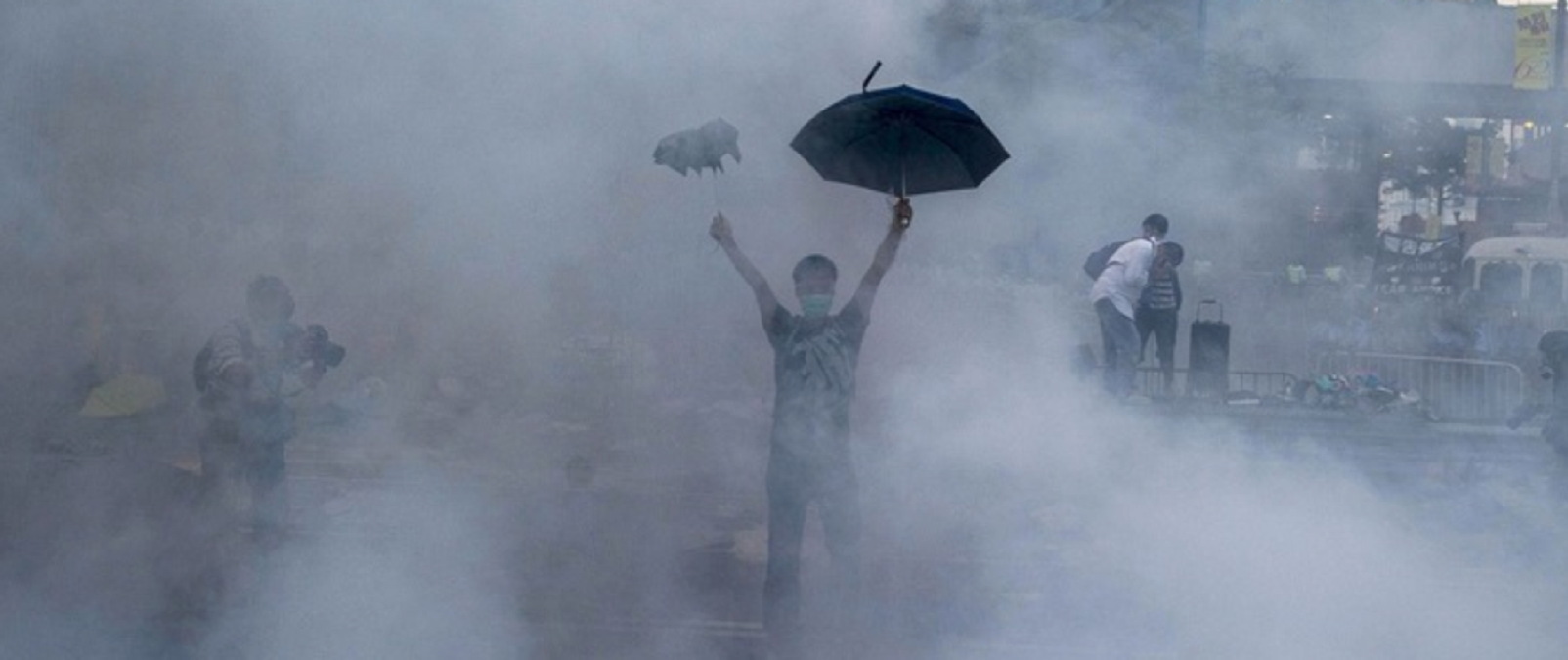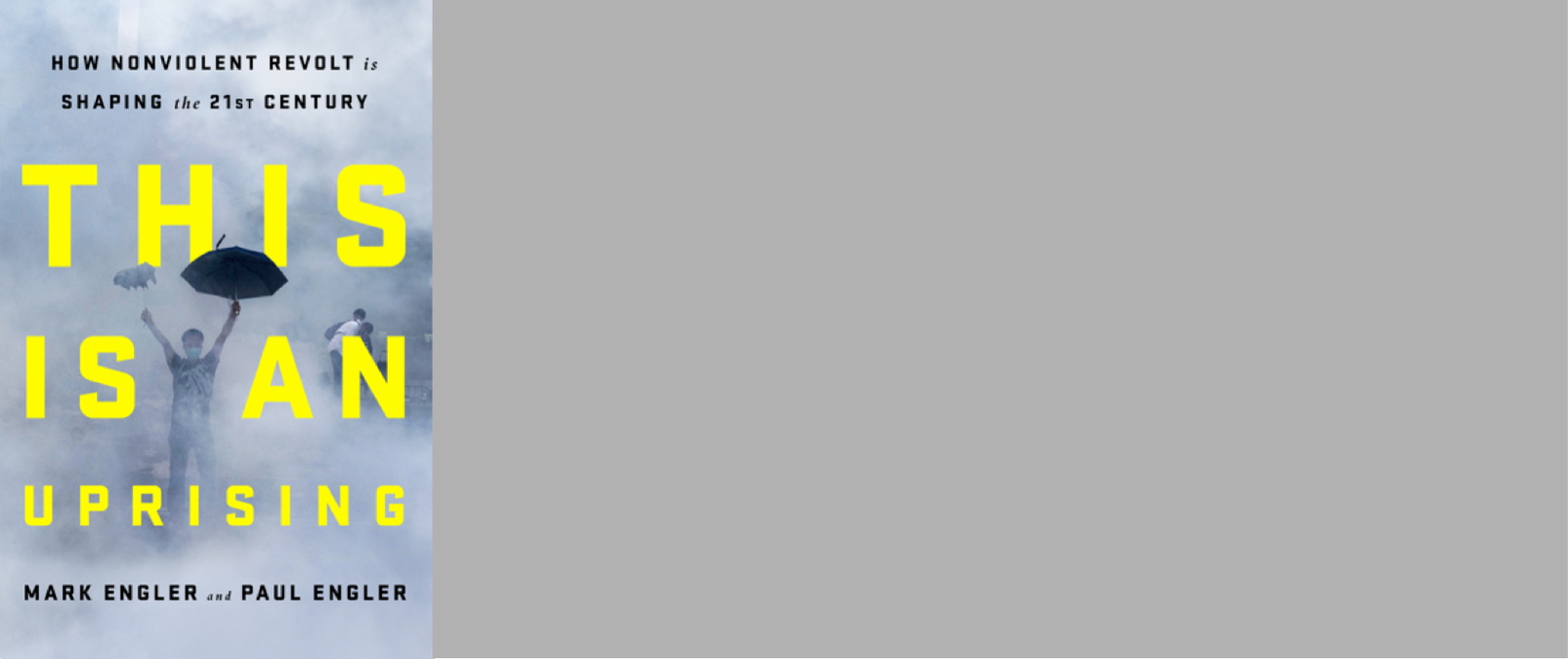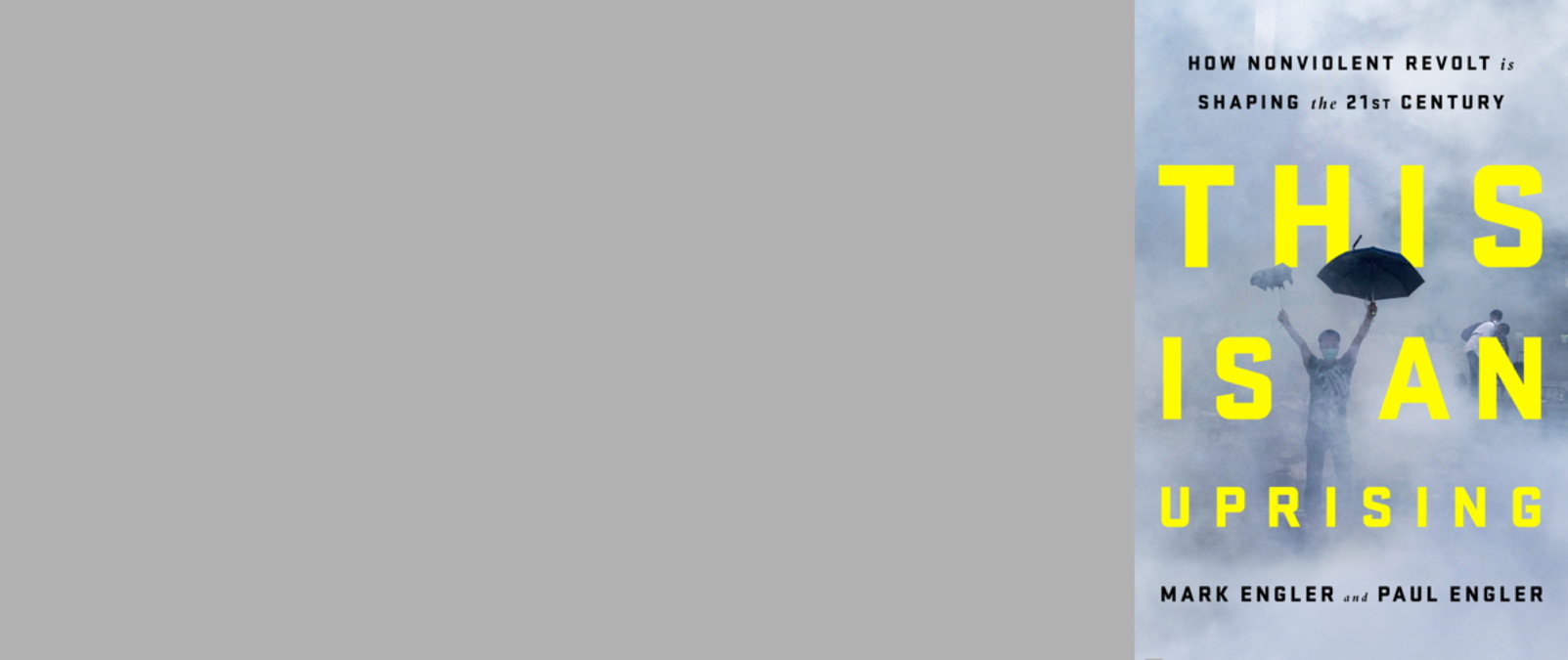Martin Luther King Jr. Was a Disruptor, Not a Peacemaker
Like those of Black Lives Matter activists today, King’s methods were widely criticized— even when they were effective.

An explosive new book from authors Mark and Paul Engler on how nonviolent revolt is shaping the twenty-first century. Now available at booksellers everywhere!

that truly transformational, even revolutionary
change might be possible... in our lifetimes (but
who wonder what strategies or tactics could
possibly achieve a monumental shift in
consciousness), this book is for you."
—Michelle Alexander, author of The New Jim Crow

[It] puts a name on . . . a powerful method for
making real change fast. And real change fast is
in fact what our world requires."
—Bill McKibben, author and co-founder of 350.org

[The authors] brilliantly illuminate the debates
between advocates of mass mobilization, organization
building, nonviolence, and disruption."
—Frances Fox Piven, author of Poor People’s Movements
Like those of Black Lives Matter activists today, King’s methods were widely criticized— even when they were effective.
Like Bernie Sanders today, Martin Luther King, Jr. considered launching a presidential campaign to oppose military interventionism and promote democratic socialism. Here’s why he decided against it.
Lessons from the Salt March for today’s social movements.
Reconsidering Poor People’s Movements in the wake of mass uprising.
After Occupy and other mass uprisings, some community organizers are interested in questioning the old divide between “movements” and “organizations”—and in harnessing the power of both.
It took years of political evolution for King to understand nonviolence not merely as a moral force, but as an effective strategy for leveraging political change.
